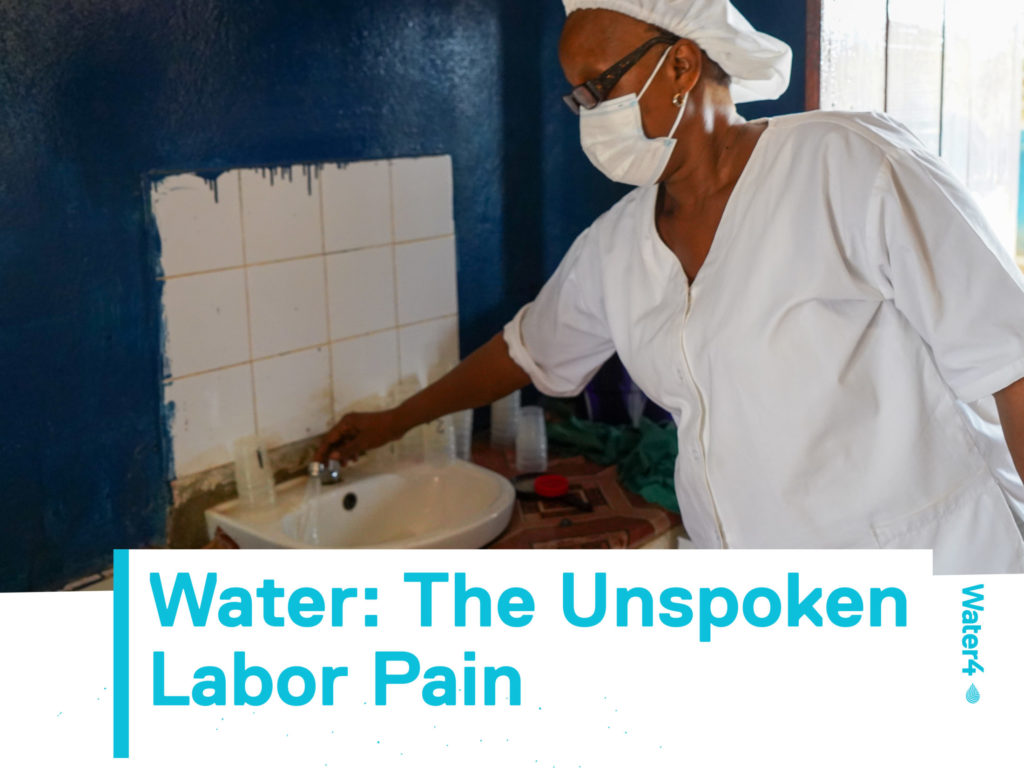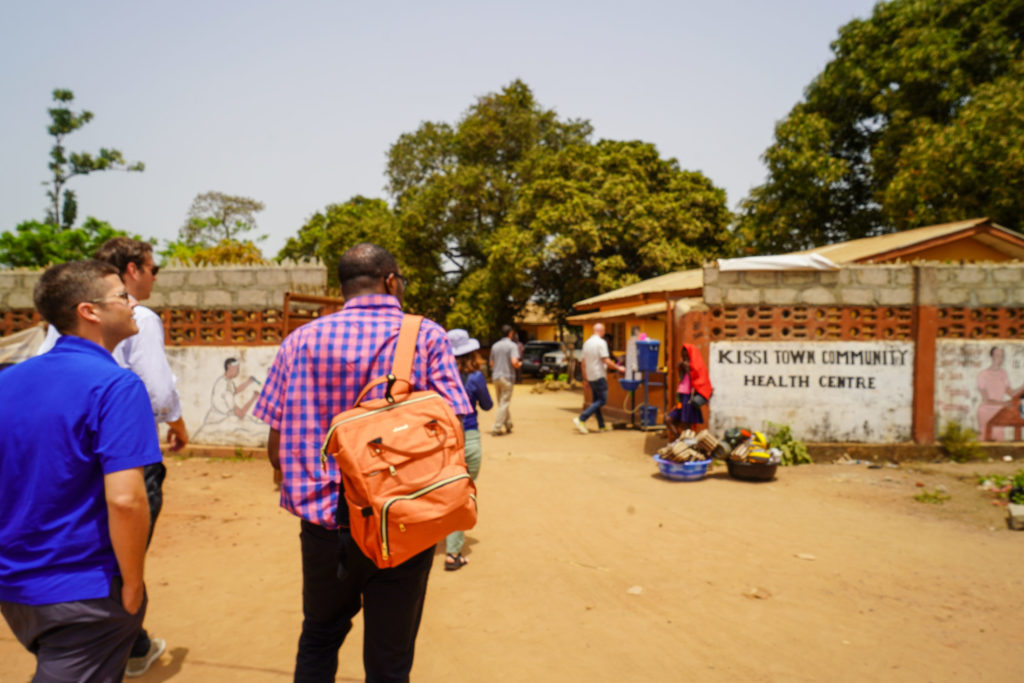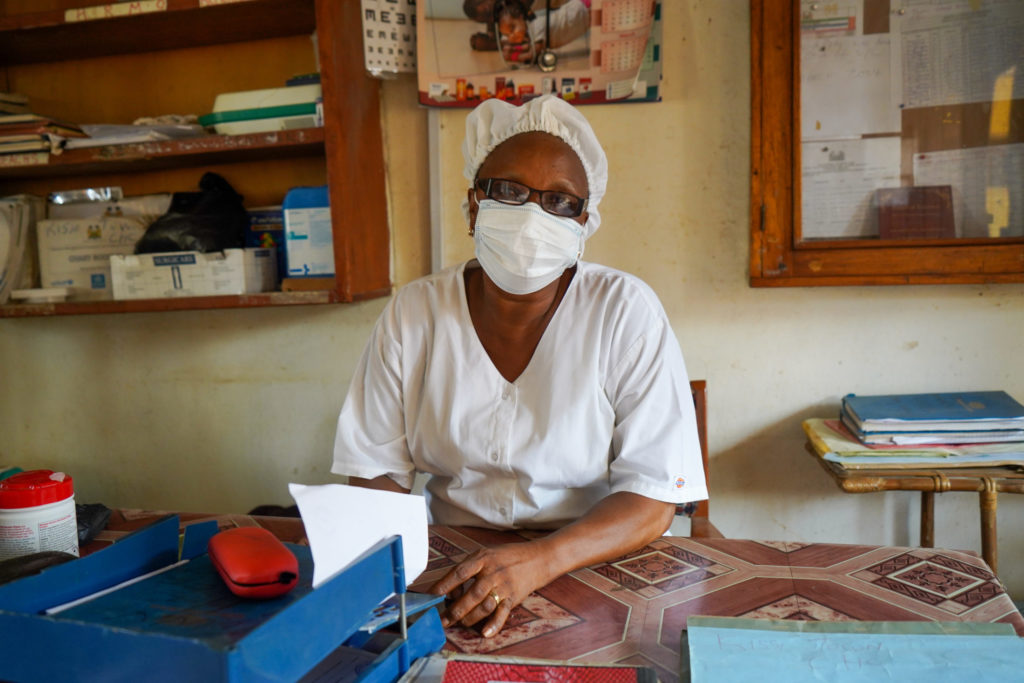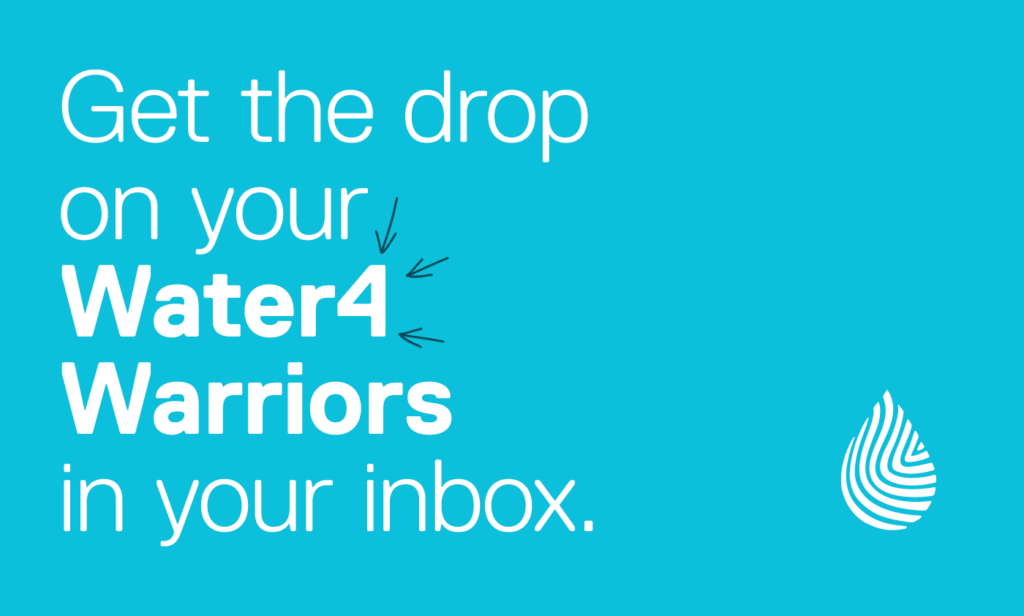Every home, school, and clinic, always. You will see this often if you follow Water4 on social media, if you look around our website or if you work with us at all. It’s a slogan meant to convey that our goal is to provide clean water in communities holistically. Not just at community walk-up points but also in homes for private family use, in schools so that children aren’t drinking clean water at home but dirty water at school, and in healthcare facilities. It’s this last one that gets less attention than the others. Western charitable givers have gotten used to images of children in rural Sub-Saharan villages gathered around water pumps or receiving a glass of clean water at school, but let us paint a picture that is far less often seen.
It’s just after dinner time in a village in rural Sierra Leone. Lydia, who is 39 weeks pregnant, is finishing up the day’s chores. She has just stored her large mortar and pestle in preparation for making tomorrow’s cassava dough when her water breaks and a contraction seizes her. It’s one week earlier than expected, but she knows immediately that the little life inside of her is ready to make its entrance. The early contractions are mild; she feels them and lets them pass. She needs to begin the journey to the nearest healthcare clinic, but there is something she must do first. Her local clinic does not have access to water on the premises. No taps, no pumps, no running water. It is required of birthing mothers to fetch and bring their own water to their births. There is no time to waste. Lydia grabs a jerry can and starts the three-mile walk to the water source that her village uses, a murky stream. She knows the water is contaminated. It is responsible for sickness and death in her community. In fact, diarrheal diseases from unclean water take the lives of nearly 2 million people per year. But she has no other option and so she presses on. She walks to this stream daily to fetch water and it usually takes her an hour to get there. But as her contractions gain strength and roll over her body, she is not able to walk as fast. Her legs begin to lose their strength as they weaken from the pain and she must rest more often. When she arrives at the stream, she collects water with tears in her eyes. She knows the risk this water poses. Her contractions get stronger and she buckles under the weight of the can balancing on her head as the pain comes in waves and she makes the walk back to the village and then on to the clinic.
Any woman in the developed world who has felt the pain of childbirth can feel the agony in the story above. It is a scenario that seems impossible to mothers here with guaranteed access to clean water, sterile instruments, and the sanitized hands of healthcare workers guiding our babies into this world during their birth. And yet it happens every day to our sisters in Christ in rural Africa. Jeremiah 1:5 tells us that before God formed us in our mother’s wombs, He had already known us and set us apart. We are assured by the words in Psalm 139:13-14 that we are fearfully and wonderfully made and knit together in the womb. Birth is a beautiful miracle; a divine experience of bringing new souls into this life – souls that were intricately and uniquely designed by the Creator of the Universe. Have we gotten so comfortable with our privilege that we think the precious closeness of God with His miraculous creations only extends to the borders of our seas and not beyond it?
Unclean water is a curse on human dignity. At Water4, we strive to restore that dignity to the communities in which we work, scaling safe water services from one district to the next and then to the next, as far as the curse is found. And we will keep going until no more birthing mothers have to bear down through the pain of childbirth while collecting dirty water from contaminated sources for their own labor and deliveries, putting themselves and their newborn babies at risk but not having another option.
In March, a team from Water4 traveled to Waterloo, Sierra Leone, where we work with our local business partner, Water4Ever, to provide safe water. Rugiatu S Koroma, the Chief Health Officer of the Kissi Town Community Health Centre, shared her account of being able to see firsthand the before and after of a birthing facility without clean water getting taps for the first time. Rugiatu came to the clinic in 2017. At that time, the facility did not have water, and women who went into labor at night were not able to come. Instead, they had to wait for morning when the water tap down the street opened and they could fetch their own water to bring to their birth at the clinic. The reality of birth is that it does not wait on anyone’s clock and therefore, mothers who went into labor at night – and who could not hold on until morning – were not able to birth in a healthcare facility at all. Rugiatu knew that this had to change and so she contacted Water4Ever to get water taps into the facility. In early 2022, Water4Ever met her needs and the needs of every pregnant woman in the community, installing taps in every room that now receive routine maintenance and ongoing service.
“It’s really good,” Rugiatu said, “We’ve had the connections for almost two months now with only one interruption due to destruction at the dam. I have so many contacts that when I call, I can get someone on the phone in as little as five minutes. It’s very good. All of the rooms have water now – all of the rooms.”
Let’s revisit Lydia. How would her story be different now, in 2022, with access to safe water at her healthcare facility? As her water broke and her first contractions started, she might smile to herself, her heartbeat quickening as the excitement of getting to meet her new child begins to set in instead of the dread of laboring through the trek to collect dirty water. She would gather her essentials to take to the hospital, spending time folding the swaddling cloth she would wrap her baby in for the first snuggles instead of spending time carrying a jerry can down that long and dusty trail to a contaminated stream. She could arrive at the clinic with confidence in the delivery ahead. She has safe water to quench her thirst as she labors, safe water to wash the hands that will deliver her child, safe water to bathe the newborn, and safe water to clean her body after birth.
At Water4, we will continue working to ensure stories like this are rewritten…in every home, school, and clinic. Always.

